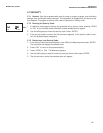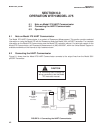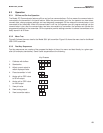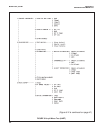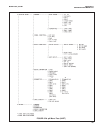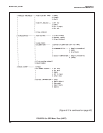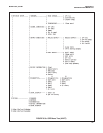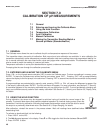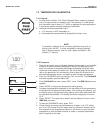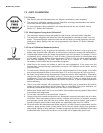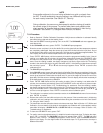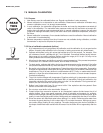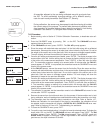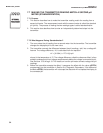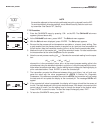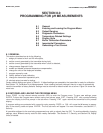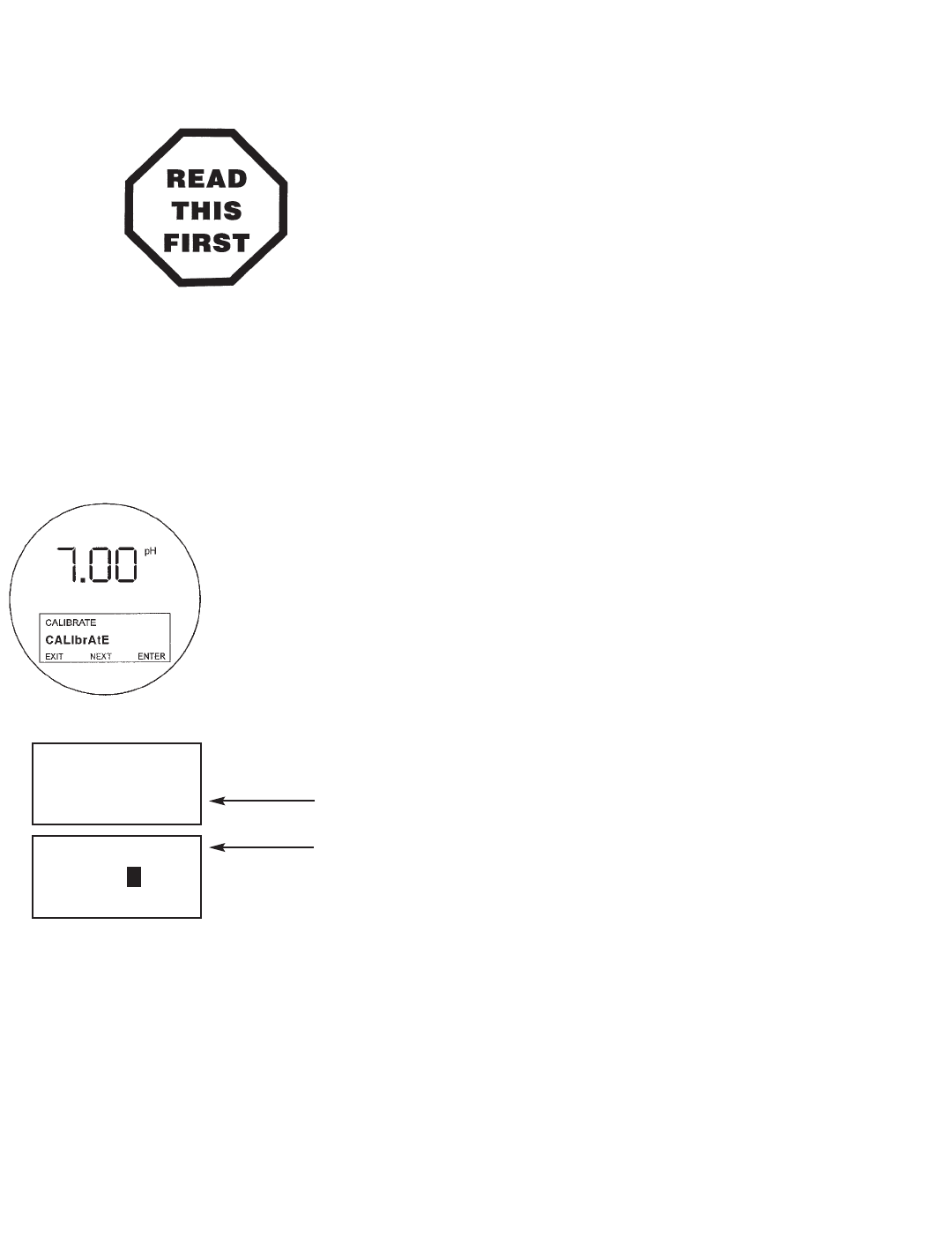
49
CALIBRATE
tEMP AAdJ
EXIT NEXT ENTER
CALIBRATE
tEMP
EXIT ENTER
025.0
MODEL 3081 pH/ORP SECTION 7.0
CALIBRATION OF pH MEASUREMENTS
7.4 TEMPERATURE CALIBRATION
7.4.1 Purpose
1. As discussed in Section 13.6, Glass Electrode Slope, measuring tempera-
ture is an important part of measuring pH. The accuracy of a new sensor
and transmitter loop is about ±1°C, which is adequate for most applications.
A new sensor seldom requires temperature calibration.
2. Calibrate the sensor/transmitter loop if . . .
a. ±1°C accuracy is NOT acceptable, or
b. the temperature measurement is suspected of being in error.
NOTE
A transmitter adjacent to the one being calibrated may pick up
signals from the IRC. To avoid accidentally changing settings,
use a different security code for each nearby transmitter. See
Section 5.7, Security.
7.4.2 Procedure
1. Place the pH sensor and a calibrated reference thermometer in an insulated
container of water at ambient temperature. Be sure the temperature ele-
ment in the sensor is completely submerged by keeping the sensor tip at
least three inches below the water level. Do not let the weight of the sensor
rest on the glass bulb. Stir continuously. Allow at least 20 minutes for the
standard thermometer, sensor, and water to reach constant temperature.
2. Enter the CALIBRATE menu by pressing CAL on the IRC. The CALIbrAtE
sub-menu appears (pictured above left).
3. At the CALIbrAtE sub-menu, press NEXT twice. The tEMP AdJ sub-menu
appears.
4. Press ENTER to display the temperature editing prompt.
5. Compare the temperature displayed by the transmitter with the temperature
measured with the reference thermometer. If the readings are different, use
the editing keys to change the flashing display to the value determined with
the reference thermometer. The reading cannot be changed by more than
15°C.
6. Press ENTER . The value will be saved, and the display will return to the
tEMP AdJ sub-menu.
7. To leave the CALIBRATE menu, press EXIT .
8. Check linearity by measuring the temperature of water 10 to 15°C cooler
and 10 to 15°C warmer than the water used for calibration. Because of the
time required for the temperature element in the sensor to reach constant
temperature, a well-insulated container or, better, a constant temperature
bath is required for this step.



